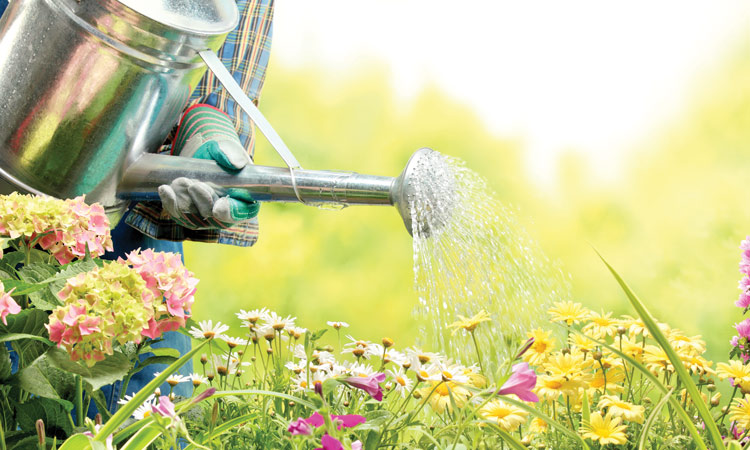My small elementary school had the most amazing gardener we all called “Uncle Silas.” He could make one of those “picture-book gardens” with tomatoes, beans, cabbage, and lettuce bursting out everywhere. The flowerbeds in front of the school were always an amazing range of colors, and he knew exactly which plants and flowers worked best for the different times of the year. He had years of experience, and he knew all the tricks of the trade.
Not every gardening story is like that, though.
I read an article from a mother named Koriane, who decided to start a vegetable garden with her kids. Mental images of a cornucopia of luscious fruit and tasty vegetables inspired them through the digging, planting, watering, and nurturing process. However, this garden seemed to do anything but produce.
Koriane got discouraged and felt like giving up many times. Then the sun would come out and she’d feel motivated to try again, hoping this time something better would come of it. She didn’t understand why the seeds she planted took so much effort and tender care to do their thing, while the weeds were bountiful and grew, well, like weeds.
After preparing the ground and planting ten types of vegetables in neat little rows, Koriane wondered why she and her kids even bothered. Even though the plants had grown quickly, the actual fruit or vegetables the plants bore hardly grew. No matter how hard they tried or how long they waited, nearly all they got in return were the plants’ inedible leaves. By and by, they ended up with a few strawberries and beets, and carrots the size of acorns, so they went ahead and had fun cooking the tiny vegetables into a small side dish for dinner. But it wasn’t really what they’d hoped for!
So Koriane decided to read more about gardening, and she discovered that there are many factors involved in growing a perfect vegetable or fruit tree. For instance, you need enough of the right bees around to pollinate the flowers. If the wrong kind of pest control is used in the area and there are few or no bees, the flowers won’t be properly pollinated and the amount of fruit or vegetables can be affected. Also, it’s important to know the traits of each plant or tree. Some trees simply alternate years, bearing a lot of fruit one year and nothing the following year.
Rather than discouraging them further, this news actually helped Koriane and her kids not feel too bad about their struggling garden. They were better informed about the challenges they faced, and it made them want to learn more, to try new things, and most of all, to enjoy the process without stressing too much about the results.
Koriane said that this experience brought to mind how life works. You try to do the right thing and be a good example of a Christian. You share your faith with others, help those in need, take time to study the Bible and pray. Sometimes you see and feel the returns from keeping these principles, while other times you don’t. Sometimes it’s easy to see how your participation made a difference in someone’s life, while other times you’re still doing what you can when you can, but see little in the way of results. The cool thing is that God doesn’t judge you by your results, but by your faithfulness.
I found this reflection very encouraging. We all go through dry spells in our lives, and knowing that God looks at our hearts and doesn’t judge us by our successes but by our faithfulness lifts a lot of the pressure. This doesn’t mean we shouldn’t take the time to seek Him about how we can do the job better, or see if there’s anything we can learn or do to improve, but these are things we can do while we’re trusting Him for the outcome.
Remember, the commendation we want at the end of the day is “Well done, good and faithful servant! You have been faithful with a few things; I will put you in charge of many things. Come and share your master’s happiness!”1
In the meantime, let’s enjoy the little blessings and successes that come our way, knowing we’re all part of God’s great master plan.
- Matthew 25:21 NIV ↑
